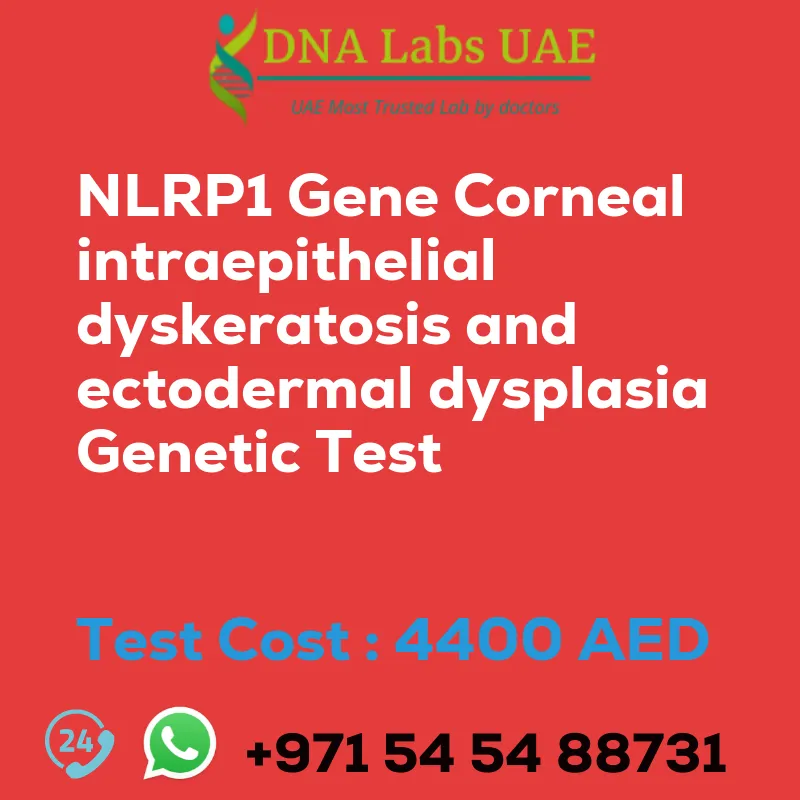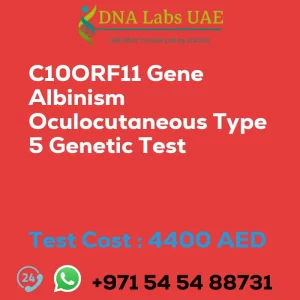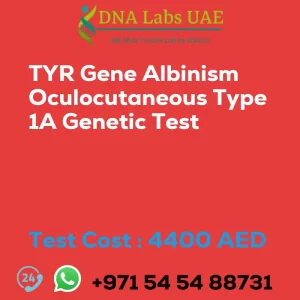NLRP1 Gene Corneal Intraepithelial Dyskeratosis and Ectodermal Dysplasia Genetic Test
Are you concerned about corneal intraepithelial dyskeratosis and ectodermal dysplasia? DNA Labs UAE offers a comprehensive genetic test to detect mutations in the NLRP1 gene that may be responsible for these conditions.
Test Details
The NLRP1 gene is associated with various genetic disorders, including corneal intraepithelial dyskeratosis and ectodermal dysplasia. Our NGS genetic testing method allows us to sequence the entire coding region of the NLRP1 gene, enabling us to identify any mutations that may be present.
Corneal intraepithelial dyskeratosis is a rare inherited disorder that affects the outer layer of the cornea, leading to vision impairment and eye irritation. Ectodermal dysplasia, on the other hand, is a group of inherited disorders that affect the development of skin, hair, nails, teeth, and sweat glands.
By undergoing our NLRP1 gene test, you can obtain a diagnosis for these genetic disorders and gain valuable information about the inheritance pattern of the condition. This information can be particularly useful for family planning and genetic counseling.
Test Components and Price
Our NLRP1 Gene Corneal Intraepithelial Dyskeratosis and Ectodermal Dysplasia Genetic Test is priced at AED 4400.0. The test requires a blood sample, extracted DNA, or one drop of blood on an FTA card.
Report Delivery
Once the sample is received, our laboratory will process the test and deliver the report within 3 to 4 weeks.
Test Type and Doctor
The NLRP1 Gene Corneal Intraepithelial Dyskeratosis and Ectodermal Dysplasia Genetic Test falls under the category of Ophthalmology Disorders. It is recommended to consult an Ophthalmologist for this test.
Test Department
The NLRP1 Gene Corneal Intraepithelial Dyskeratosis and Ectodermal Dysplasia Genetic Test is conducted in our Genetics department.
Pre-Test Information
Before undergoing the NLRP1 Gene Corneal Intraepithelial Dyskeratosis and Ectodermal Dysplasia Genetic Test, it is essential to provide the clinical history of the patient. Additionally, a genetic counseling session will be conducted to draw a pedigree chart of family members affected by NLRP1 Gene Corneal Intraepithelial Dyskeratosis and Ectodermal Dysplasia.
Treatment and Management
Treatment for corneal intraepithelial dyskeratosis and ectodermal dysplasia primarily focuses on managing symptoms and improving the quality of life. This may involve the use of eye drops or surgery for corneal problems, as well as dental prosthetics or hair replacement therapy for ectodermal dysplasia.
Don’t let genetic disorders affect your life. Get tested today with DNA Labs UAE’s NLRP1 Gene Corneal Intraepithelial Dyskeratosis and Ectodermal Dysplasia Genetic Test!
| Test Name | NLRP1 Gene Corneal intraepithelial dyskeratosis and ectodermal dysplasia Genetic Test |
|---|---|
| Components | |
| Price | 4400.0 AED |
| Sample Condition | Blood or Extracted DNA or One drop Blood on FTA Card |
| Report Delivery | 3 to 4 Weeks |
| Method | NGS Technology |
| Test type | Ophthalmology Disorders |
| Doctor | Ophthalmologist |
| Test Department: | Genetics |
| Pre Test Information | Clinical History of Patient who is going for NLRP1 Gene Corneal intraepithelial dyskeratosis and ectodermal dysplasia NGS Genetic DNA Test. A Genetic Counselling session to draw a pedigree chart of family members affected with NLRP1 Gene Corneal intraepithelial dyskeratosis and ectodermal dysplasia NGS Genetic DNA Test gene NLRP1 |
| Test Details |
The NLRP1 gene is associated with various genetic disorders, including corneal intraepithelial dyskeratosis and ectodermal dysplasia. NGS genetic testing can be used to identify mutations in this gene that may be responsible for these conditions. Corneal intraepithelial dyskeratosis is a rare inherited disorder that affects the outer layer of the cornea, leading to vision impairment and eye irritation. Ectodermal dysplasia is a group of inherited disorders that affect the development of skin, hair, nails, teeth, and sweat glands. NGS genetic testing involves sequencing the entire coding region of the NLRP1 gene to identify any mutations that may be present. This test can help diagnose these genetic disorders and provide information on the inheritance pattern of the condition, which can be useful for family planning and genetic counseling. Treatment for corneal intraepithelial dyskeratosis and ectodermal dysplasia is typically focused on managing symptoms and improving quality of life. This may include eye drops or surgery for corneal problems, and dental prosthetics or hair replacement therapy for ectodermal dysplasia. |








